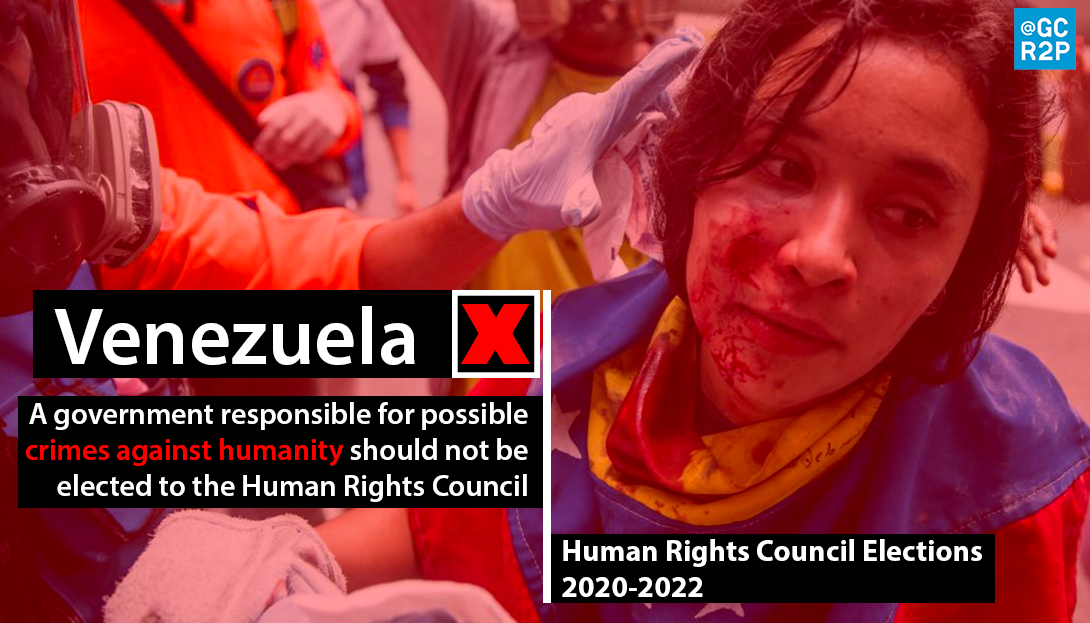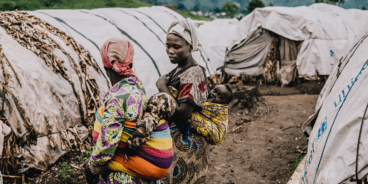

Venezuela should not be elected to the Human Rights Council
On Thursday, 17 October, the UN General Assembly will elect 14 new members to the Human Rights Council (HRC) for a three-year term beginning in January 2020. Until recently only Venezuela and Brazil were running for the two available seats for the Latin America and Caribbean regional group, with a “clean slate” paving the way for both states’ unopposed election to the 47-member body.
However, on 3 October Costa Rica’s President Carlos Alvarado Quesada announced his country’s candidacy as an “alternative” to Venezuela, stating that Venezuela’s appalling human rights record makes it unfit for HRC membership. The Global Centre for the Responsibility to Protect commends the decision taken by Costa Rica. UN General Assembly Resolution 60/251 clearly states that while membership of the HRC is open to all UN member states, “members elected to the Council shall uphold the highest standards in the promotion and protection of human rights,” including through full cooperation with the HRC and other human rights mechanisms.
The Global Centre believes that Venezuela does not fulfill the minimum requirements for HRC candidacy. Venezuela has undermined the promotion and protection of human rights both domestically and internationally. Indeed, ongoing systematic violations of human rights in Venezuela – authorized at the highest level of the government – may amount to crimes against humanity.
Since President Nicolas Maduro took office in 2013, popular discontent with his government has led to widespread protests. The government has routinely responded with disproportionate and deadly force as well as the mobilization of auxiliary militias, including so-called armed “colectivos.” During the HRC’s 41st session in July the UN High Commissioner for Human Rights, Michelle Bachelet, noted that of the more than 6,850 people killed in “security operations” since January 2018, many may have been extrajudicially executed. The High Commissioner reported that the government has also arbitrarily detained and tortured thousands of alleged opponents as a “means to intimidate and repress” dissent. The International Criminal Court, after referral by a group of six states, has opened a preliminary examination into potential crimes against humanity perpetrated in Venezuela.
This track record should disqualify Venezuela from being elected to the Human Rights Council. But the Venezuelan authorities have also demonstrated their unwillingness to cooperate with the HRC by rejecting a resolution adopted last month establishing an independent Fact-Finding Mission to investigate the ongoing human rights crisis in the country. Full cooperation with HRC bodies is a requirement of Council membership.
The Maduro government has failed to uphold its primary responsibility to protect all Venezuelans, regardless of political affiliation, and their election to the HRC would undermine the Council’s credibility, effectiveness and integrity. The Global Centre calls on all UN member states to vote against Venezuela and elect Costa Rica to the Human Rights Council for the 2020-2022 term. This would send a strong message to both perpetrators and victims that the international community does not tolerate mass atrocity crimes, and that the HRC is for states that are genuinely committed to the protection and promotion of universal human rights.

